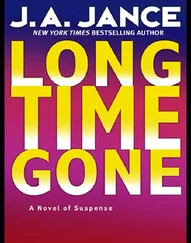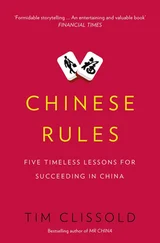Tim Gunn - Gunn's Golden Rules
Здесь есть возможность читать онлайн «Tim Gunn - Gunn's Golden Rules» весь текст электронной книги совершенно бесплатно (целиком полную версию без сокращений). В некоторых случаях можно слушать аудио, скачать через торрент в формате fb2 и присутствует краткое содержание. Город: New York, Год выпуска: 2010, ISBN: 2010, Издательство: Gallery Books, Жанр: Психология, на английском языке. Описание произведения, (предисловие) а так же отзывы посетителей доступны на портале библиотеки ЛибКат.
- Название:Gunn's Golden Rules
- Автор:
- Издательство:Gallery Books
- Жанр:
- Год:2010
- Город:New York
- ISBN:978-1-4391-7656-6
- Рейтинг книги:4 / 5. Голосов: 1
-
Избранное:Добавить в избранное
- Отзывы:
-
Ваша оценка:
- 80
- 1
- 2
- 3
- 4
- 5
Gunn's Golden Rules: краткое содержание, описание и аннотация
Предлагаем к чтению аннотацию, описание, краткое содержание или предисловие (зависит от того, что написал сам автор книги «Gunn's Golden Rules»). Если вы не нашли необходимую информацию о книге — напишите в комментариях, мы постараемся отыскать её.
Gunn's Golden Rules — читать онлайн бесплатно полную книгу (весь текст) целиком
Ниже представлен текст книги, разбитый по страницам. Система сохранения места последней прочитанной страницы, позволяет с удобством читать онлайн бесплатно книгу «Gunn's Golden Rules», без необходимости каждый раз заново искать на чём Вы остановились. Поставьте закладку, и сможете в любой момент перейти на страницу, на которой закончили чтение.
Интервал:
Закладка:
I don’t think everyone needs to go all the time (nor can everyone afford to), but I do think everyone at some point or other can benefit from a little chat with a psychologist, whether it’s when the kids leave for college or when you’ve lost your job or when you’ve had a painful breakup or when someone close to you has died or when you’ve for no discernible reason lost the joy in life.
I think people are afraid to admit to problems, because once they admit to them, then those problems become real. But everybody has problems. If you think you don’t have any, then you do have a problem. Being in denial or feeling you can’t talk about things is so dangerous. You have to do something about whatever your struggles are. It’s what gives us resources to move forward. It’s what life is .
People get very defensive if they think you’re saying what they’re doing isn’t normal. I don’t think it’s about normal. It’s about acceptable. When we talk about a situation that we need to change, it’s better not to think about whether or not it’s normal, but instead about whether or not it’s acceptable. Some things are contextual: People blow their noses on the street in India with no tissues. If you’re over there, you can do that. But if you’re on an American main street, you’d best break out the tissues.
Other things are never okay. It’s not acceptable to be abusive to a family member, or for a child to behave destructively, or for a job to make you miserable. You need to figure out what to do about those things, and there’s no shame in admitting you need a shrink, or your pastor, or your family, to help you out. It can make all the difference in the world just to have someone impartial to talk to once a week.
I say ever so glibly, “Go get some therapy,” but the value depends on the quality of the therapist. There’s a huge difference between a good one and a bad one. When I was young, my parents sent me to a lot of doctors, and some of them were far crazier than I was.
You have to shop around for someone who suits you. I think a therapist of the same gender sometimes helps with empathy, but you know when you’ve found someone you click with.
After trying a bunch of duds, eventually I wound up seeing a truly wonderful therapist five days a week—Dr. Phillip Goldblatt in New Haven, Connecticut. His sense of caring was palpable. He didn’t have to say anything; I could just sense his goodness and concern. I had the maturity of a gnat and a lot of issues. He made me deal with them. It took a long time. He would keep returning to things that came up. He absolutely gave me my life back.
Why, you may be thinking, did I have to go to therapy five times a week? Well, it wasn’t my idea, I’ll tell you that. It was an intervention that was thrust upon me. I’ll come clean: When I was seventeen, I made a serious suicide attempt. I was at yet another boarding school—I must have cycled through a dozen schools in as many semesters—and was ever more miserable. I had a debilitating stutter. I had no friends. I was incredibly lonely and depressed. I just wanted to end it all.
In my dorm room at Milford Academy I took far too many pills, then lay down to die with a sense of peaceful resignation.
Then, much to my frustration, I woke up the next morning. This wasn’t supposed to happen was my first thought when I opened my eyes on a new day.
I hear that people who survive jumping off the Golden Gate Bridge report thinking on the way down that they want to live after all. When they survive, they feel so grateful. But I didn’t have that feeling. I was disappointed that I’d failed.
Now, of course, I’m glad the pills didn’t work.
I learned how to cope. I matured so much. When I got beyond my stutter at the age of nineteen, it reminded me of how I felt about the world when I was given glasses at the age of twelve. Everything changed. I hadn’t known that you could see individual leaves on trees, or that you could read road signs from a car window. Similarly, when I could speak clearly, my world opened up. I could actually be comfortable talking to people. It was like being more fully whole. I realized I had been living only a partial existence.
Going through all that helped me be a better person and a better teacher. I feel so much compassion for what young people go through. It is very hard to grow up, especially when you’re sensitive. You’re so vulnerable at that age. I worry about my friends’ children, and I try to be a good uncle.
The Megan Meier case, in which a teenager hanged herself after being tormented online by her friend’s mother posing as a teenage boy, is an example of the worst kind of inhumanity. That case made me want to unplug the Internet.
Of course, you can’t do that. You have to let young people live their lives. But you also have to do everything you can to show them that their teenage years are going to end and that there’s a world of possibility out there. We all need to do anything we can do to help children realize that they have value and gifts to give the world.
Sometimes people ask me when I figured out that I was gay. Well, for a very long time, I didn’t know what I was. I knew what I wasn’t: I wasn’t interested in boys, but I really wasn’t interested in girls. A lot of it was denial, but it was also that I didn’t feel unsatisfied. I’ve always loved working and have made that my priority. For many years, I described myself as asexual, and that’s probably still closest to the truth.
I do believe in a spectrum of sexuality. Some people are completely straight and some are completely gay, and plenty of people are somewhere in between. I think it’s crazy how hung up Americans, especially American men, are on this subject. I identify as gay, but there are women to whom I’m attracted. It’s not like I want to go to bed with them—but I can appreciate when someone’s radiating sexiness.
Things have changed so much in the past thirty years; it’s almost hard for young people today to imagine what it was like to be gay back then. Let me tell you: It was the opposite of fun. You used to feel so alone with it all. If you were even thinking about homosexuality, you assumed it was only a matter of time before someone put you in a straitjacket. In my parents’ home, the term wasn’t even in our vocabulary. I used to think if I shared any of my thoughts, they would lock me up. If I tried to talk about anything even remotely related, my parents would say, “We’ve never heard of this!” But I think they knew that “this” was what I was, and that that’s part of why they sent me to shrinks constantly.
To this day, my mother has never acknowledged that I’m gay. I’m out in public. I mean, I’ve been on the cover of The Advocate . But it wasn’t until a couple of years ago that she finally stopped talking about women she wants to set me up with. When she met the man I was with for a decade, I introduced him as a dear friend I wanted her to meet. She didn’t ask any questions then, and she never asked me what happened to him when he dropped off the face of the earth. I always half expect her to say, “Gay? I just thought you were happy !”
In fact, if there were ever a moment when my mother and I would have talked about my being gay, it would have been one night when we went out to dinner in the Village. It was the second and last time she visited me. In twenty-six years, she’s been here only twice. I think my move to New York from Washington, D.C., was always hard for her. She found New York intimidating and always joked that she needed to lose a dress size and get a new wardrobe before she could visit.
I took her to Chez Ma Tante on West Tenth Street. We were sitting there waiting to order. She looked me right in the eyes and said, “Why would you take me to a restaurant where there are only men? Are they all homosexual ?”
Читать дальшеИнтервал:
Закладка:
Похожие книги на «Gunn's Golden Rules»
Представляем Вашему вниманию похожие книги на «Gunn's Golden Rules» списком для выбора. Мы отобрали схожую по названию и смыслу литературу в надежде предоставить читателям больше вариантов отыскать новые, интересные, ещё непрочитанные произведения.
Обсуждение, отзывы о книге «Gunn's Golden Rules» и просто собственные мнения читателей. Оставьте ваши комментарии, напишите, что Вы думаете о произведении, его смысле или главных героях. Укажите что конкретно понравилось, а что нет, и почему Вы так считаете.











